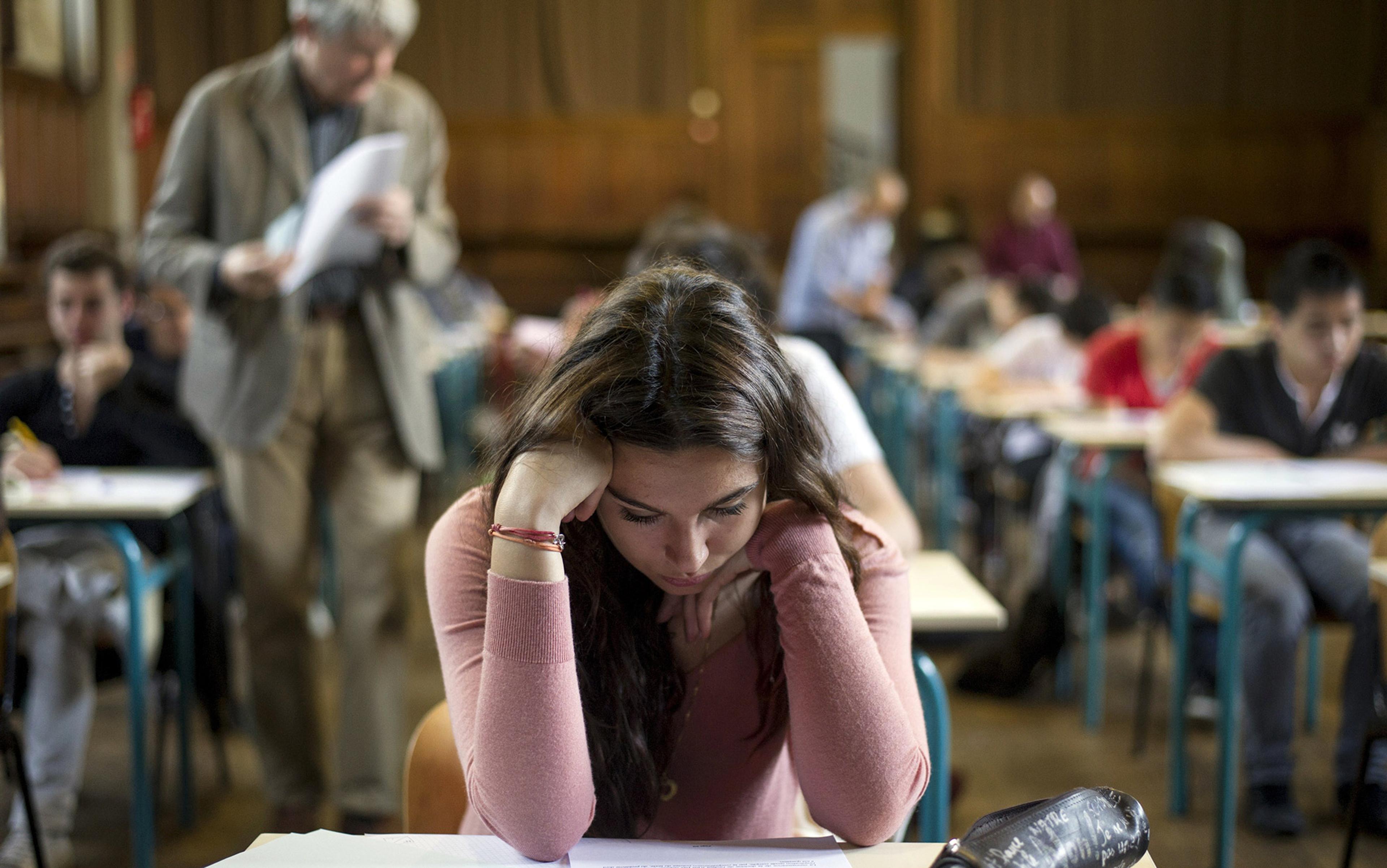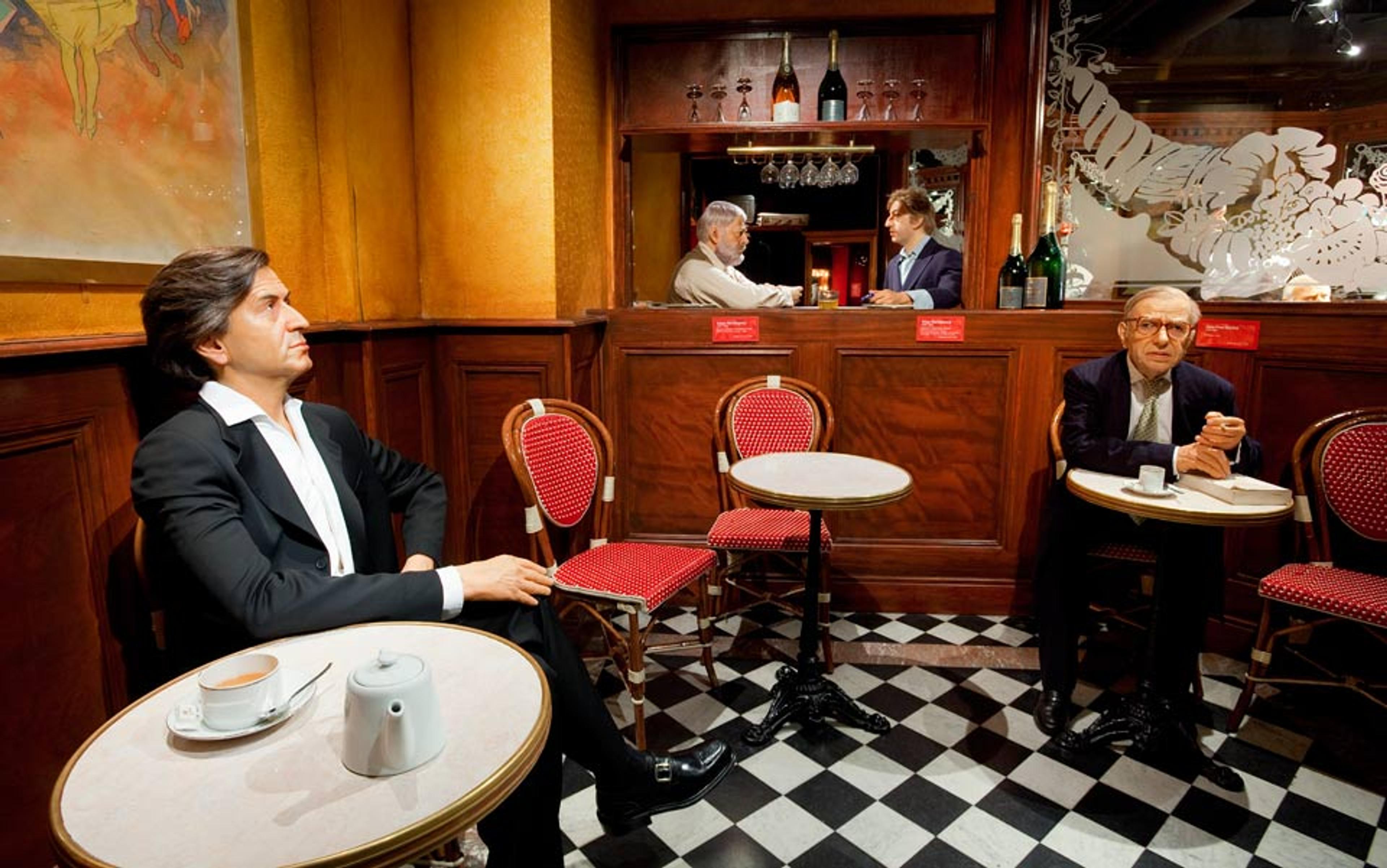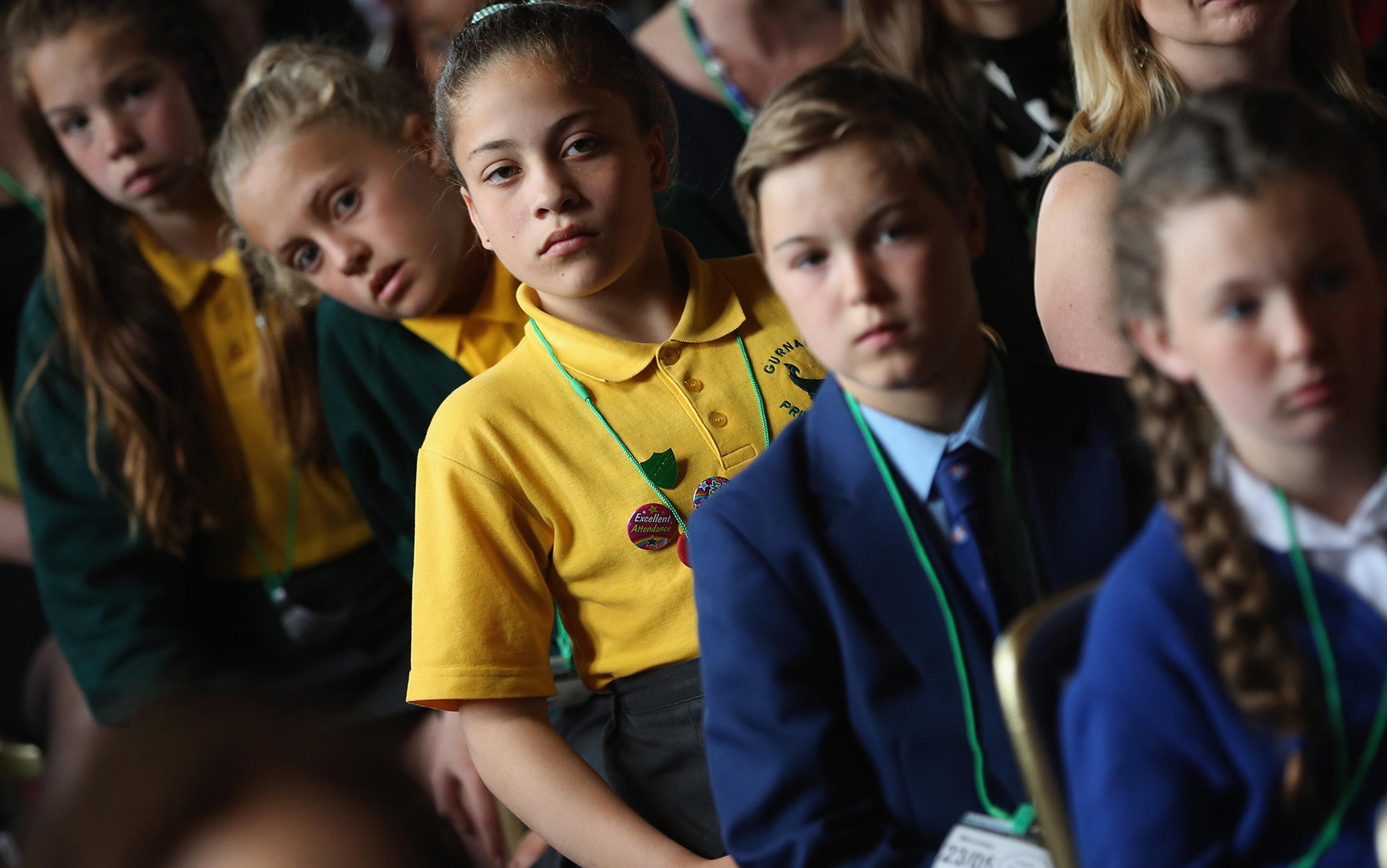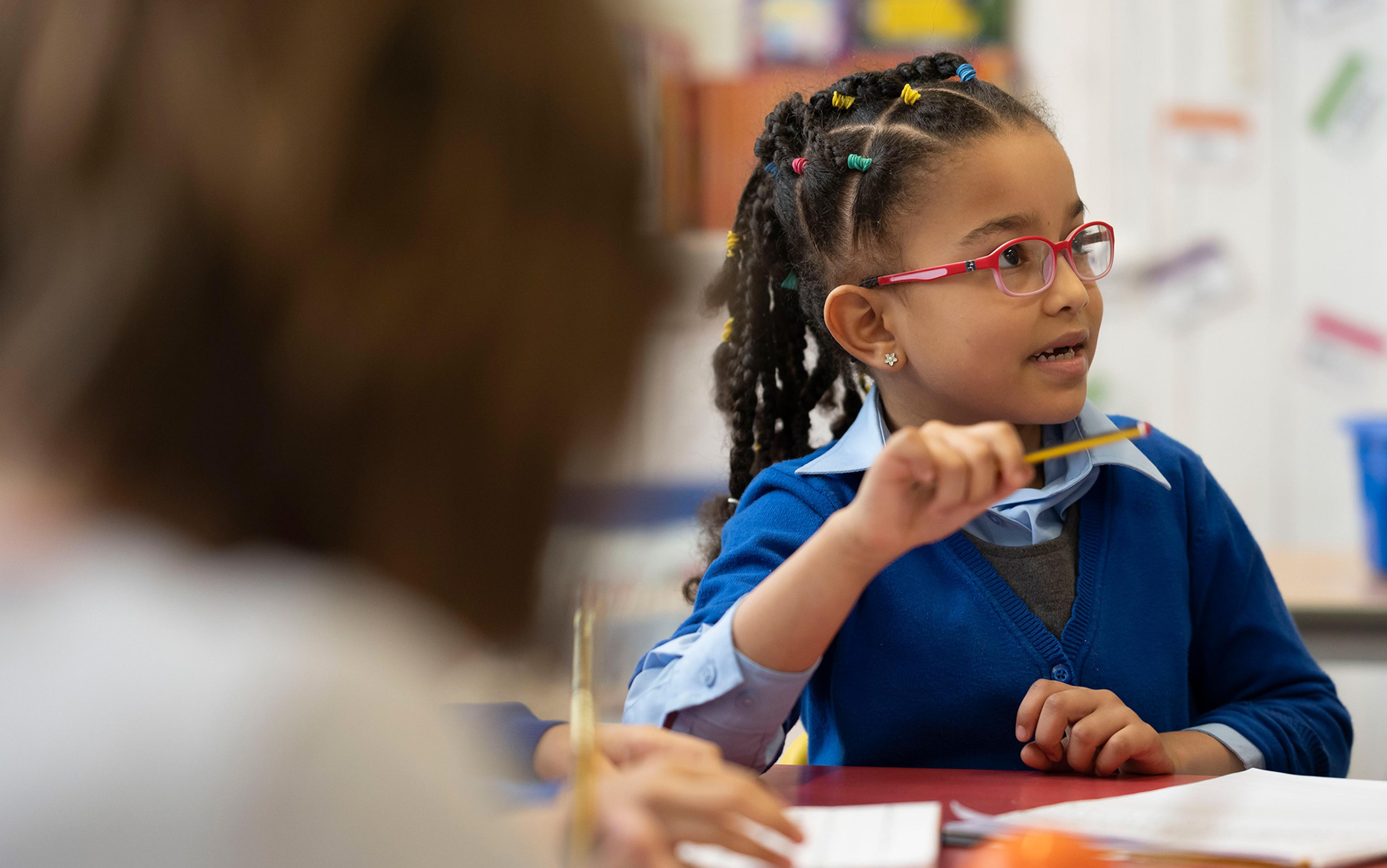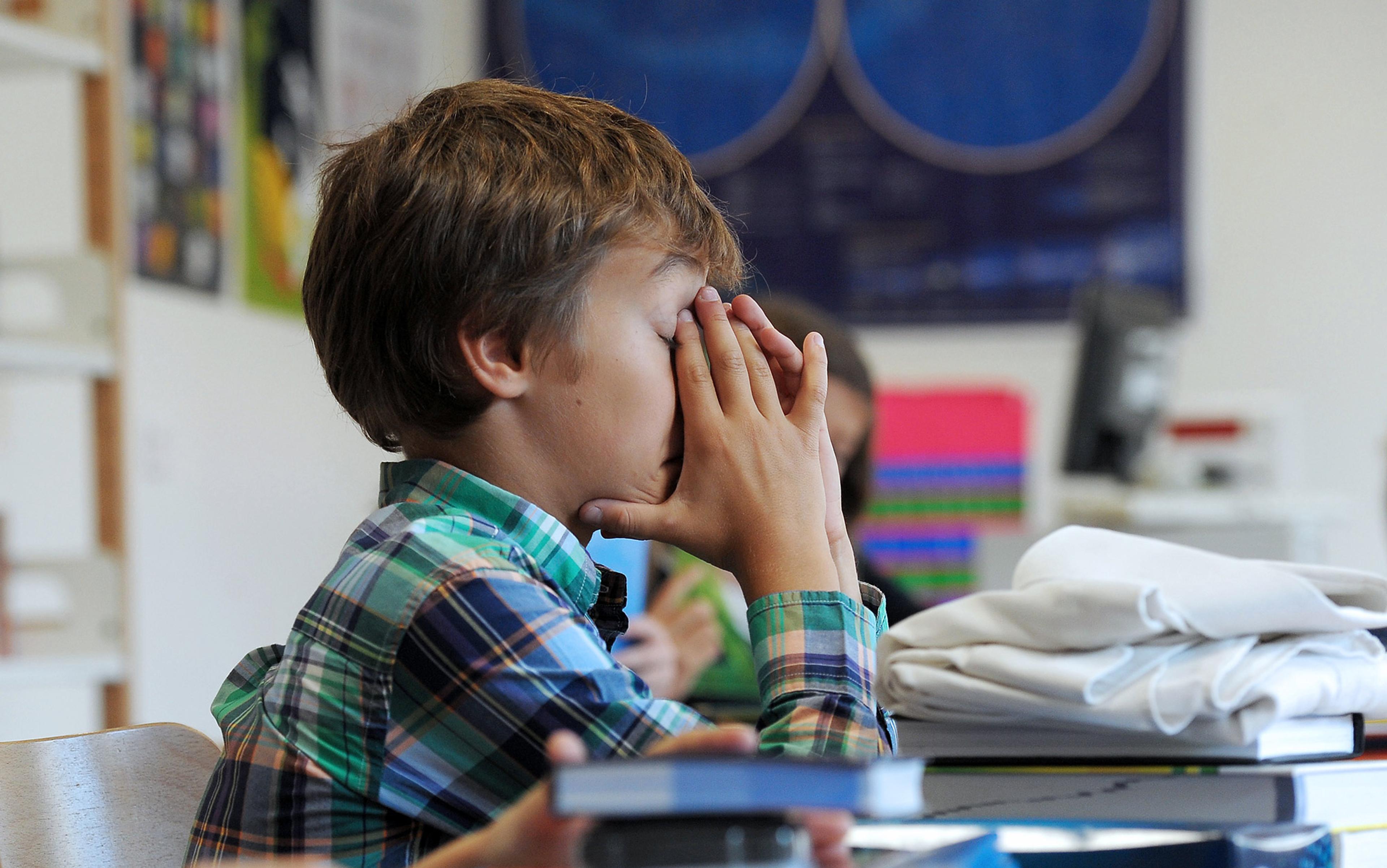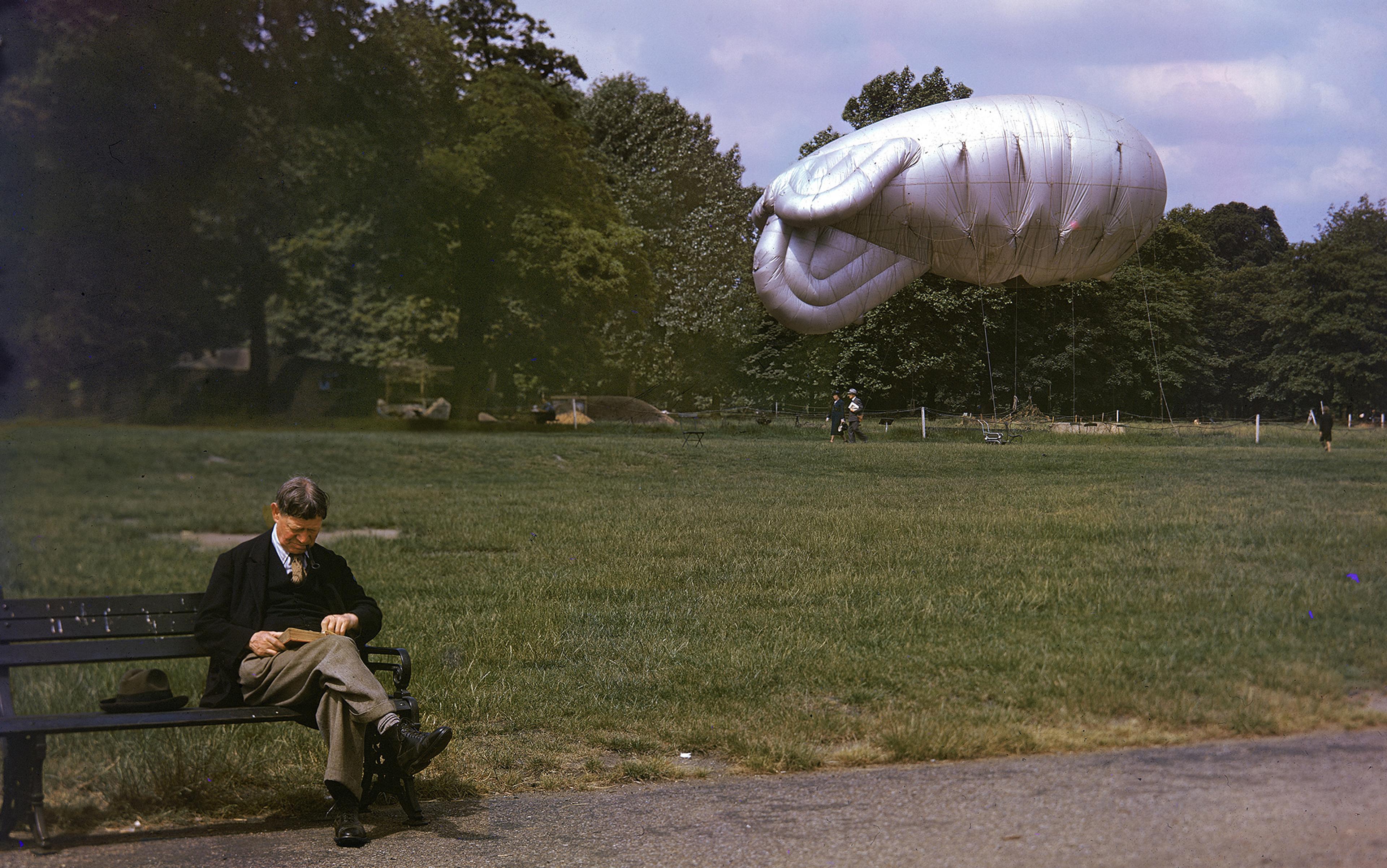Daydream with me for a moment while I imagine my ideal classroom. The first thing that strikes you when you walk in is the arrangement of the room. Not serried ranks of desks lined up before a blackboard but comfortable seats placed in a large circle. This arrangement sends a message: here is a space for open discussion and the free exchange of ideas. On the wall is a poster of Bertrand Russell with the quotation: ‘Most people would sooner die than think, and most of them do.’ There is a display cabinet with row upon row of student dissertations, covering topics as diverse as business ethics, engineering, architecture, political history, linguistics and the philosophy of science.
The students enter, taking their places in the circle, ready for the seminar to begin. The teacher sits with them in the circle and gets straight down to business. ‘Am I the same person today as I was yesterday?’ she asks. Debate breaks out immediately. The teacher says little, interjecting occasionally to ask for clarification of a point, or to suggest that the class gives further consideration to an argument that one of the students has made.
After a lively initial exchange of ideas, things calm down a little and the teacher makes some remarks about the distinction between essential and non-essential properties. She then suggests the students read an extract from the writings of the philosopher John Locke. This stimulates further discussion and debate.
In their contributions, students draw on ideas they have encountered in different subjects. One says she is the person she is because of her DNA. The teacher asks for an explanation of the biology behind this idea. Someone questions how the theory applies to identical twins. Another student suggests that we all play roles in life and it is these roles that define our identity.
The atmosphere in the class is relaxed, collaborative, enquiring; learning is driven by curiosity and personal interest. The teacher offers no answers but instead records comments on a flip-chart as the class discusses. Nor does the lesson end with an answer. In fact it doesn’t end when the bell goes: the students are still arguing on the way out.
This is my ideal classroom. In point of fact, it is more than just a dream. My real classroom sometimes looks like this, at least occasionally. I learned when I began teaching that lessons in which students are actively involved in discussion, debate and enquiry tend to be more enjoyable and memorable both for the student and the teacher, therefore I try wherever possible to run things this way.
But the sad fact is that the vast majority of lessons are determined by a different goal. For most teachers and students, the classroom experience is shaped, down to the last detail, by the requirement to prepare for examinations. When students enter such classrooms, the focus is not on open-ended discussion or enquiry, but on learning ‘what we need to know’ to succeed in whichever examination is next on the horizon. Most likely, there will be a ‘learning outcome’ for the lesson, drawn straight from the exam syllabus. There will be textbooks with comments from the examiners, banks of possible exam questions and bullet-pointed notes with ‘model answers’. Far from being open spaces for free enquiry, the classroom of today resembles a military training ground, where students are drilled to produce perfect answers to potential examination questions.
If you are not a teacher yourself or haven’t recently talked to children about their experience of school, you would be shocked by the extent to which the ‘teach to the test’ culture had suffused education. In one survey of the attitudes of university staff, this mentality was discussed in withering terms. A lack of curiosity and ‘sheer love of investigation’ were noted, and traced back to an underlying approach to schooling that reduces learning to test preparation, defined as a ‘joyless little bean-counter’ approach, whereby students think that learning is ‘simply a matter of knowing the right answer’. This, it was noted, was not confined simply to one set of examinations but was ‘embedded in the entire education system’. In Not for Profit (2010), Martha Nussbaum puts it this way:
‘Teaching to the test’, which increasingly dominates public school classrooms, produces an atmosphere of student passivity and teacher routinisation. The creativity and individuality that mark out the best humanistic teaching and learning has a hard time finding room to unfold.
In one survey of academics, 87 per cent of lecturers said that they thought that too much ‘teaching to the test’ was a major factor contributing to school students being underprepared for study at university. Ask the students themselves and they concur. In an interview for a Davos 2016 debate on the Future of Education, a student from Hong Kong said he felt that the present approach in schools yielded ‘industrialised mass-produced exam geniuses who excel in examinations’ but who are ‘easily shattered when they face challenges’.
When the philosopher Karl Popper, writing in Unended Quest (1974), dreamed of his ideal school, he imagined the very opposite, namely a place where learning takes the form of free, intrinsically interesting enquiry, rather than mere exam preparation:
If I thought of a future, I dreamt of one day founding a school in which young people could learn without boredom, and would be stimulated to pose problems and discuss them; a school in which no unwanted answers to unasked questions would have to be listened to; in which one did not study for the sake of passing examinations.
I share Popper’s dream. I think that school becomes more enjoyable and more effective when, instead of simply teaching students to pass examinations, they teach students to think for themselves.
To understand how this can be achieved, we need to remember something that Socrates drew our attention to long ago, but which in our eagerness to turn schools into engines of economic productivity we have forgotten, namely that education is a philosophical process. It begins with questioning, proceeds by enquiry, and moves in the direction of deeper understanding. The journey of enquiry is powered by critical reflection, discussion and debate. It leads not to final answers but to a greater appreciation of the limits of our knowledge, both of the world around us and of our own mysterious selves.
It is this appreciation that Socrates termed ‘wisdom’. He tried to goad his fellow Athenians into beginning to think for themselves by questioning them so as to expose their limited understanding of ideas that were central to their lives, such as justice or courage. Undertaken in a constructive spirit, Socratic questioning becomes the starting point for a process of enquiry as we seek to expand our understanding. It can also engender humility and openness to the ideas of others.
If schools are to fulfil their purpose, they cannot afford to neglect this philosophical dimension of learning. They need to see themselves not simply as dispensers of the knowledge necessary for success in the world of work but as communities of philosophical reflection, spaces where students can explore the meaning of what they learn, and think for themselves about what it means to live well. Understood in these terms, philosophical education is not a discrete subject but an approach to learning that finds application at all points of the curriculum.
When teachers become Socratic mentors, they stimulate students to think for themselves, rather than passively absorbing information
Philosophical education begins when a teacher adopts the role of ‘Socratic mentor’. In a conventional classroom, the teacher is seen as the provider of the information that students ‘need to know’, this being determined by the requirements of whatever test looms on the horizon. Philosophical education takes the form of shared enquiry, a process in which the teacher guides the class towards understanding through dialogue, not monologue.
The template for such enquiry is provided by Socrates, who once demonstrated that he could, by a process of questioning, teach geometry to a slave-boy who had not been taught any mathematics previously. When teachers adopt the role of Socratic mentors, their questioning of students stimulates them to think for themselves about the problem at hand, rather than passively absorbing information.
The results of teaching in this way can be dramatic and surprising. I once spent a year teaching 17-year-olds an optional philosophy class. There was no formal syllabus and no examination. We simply talked about some interesting philosophical questions, such as how language gets its meaning and whether we know anything at all. The methodology was Socratic. We discussed the questions without coming to any settled conclusions. The discussions were relaxed, fun and informal; so much so that I subsequently found myself wondering how much had genuinely been learned.
Yet a few years later, one of the students, Alastair Parvin, who was by then carving a successful path in the world of architecture, remarked on how memorable he had found these Socratic discussions: ‘It is rather paradoxical how we never worked towards an exam and yet I remember far more of it than I do most other subjects I was studying at the time!’ For Parvin, the chance to ‘think outside the box’ was educationally potent and liberating. It is something he has continued to do in his career with striking results, as his TED talk on democratic architecture illustrates.
Of course, there is more to learning than classroom conversation, exciting and stimulating though this might be. Good thinking needs to be informed. If our model of learning is participation in a conversation about ideas, then it will be richer and deeper if students are invited to engage with ‘the best which has been thought and said’, as Matthew Arnold put it in Culture and Anarchy (1869). This insight is enshrined in the traditional notion of ‘prep’: preparatory reading prior to a lesson. It has been revived in recent years through the promotion of the so-called ‘flipped classroom’, where the information-acquisition stage is carried out privately, prior to the lesson, leaving time for the more intellectually challenging tasks of argumentative analysis and discursive inquiry in the lesson.
There are some who question whether any such thing as ‘teaching someone to think’ is possible, but it happens naturally enough under the right conditions. How do you learn anything at all? Aristotle said we learn by doing. It isn’t a matter of passively absorbing information: learning happens when we try to do something. We learn to swim by trying to swim; we learn to play the flute by trying to play it. What Aristotle didn’t mention is the need for supervision: we need someone watching us to tell us when we are getting it wrong, and how to improve. Learning is supervised trying.
We can apply this to the next question: how can someone be taught to think? Students learn to think by thinking, under the watchful eye of a Socratic mentor who gives guidance on how to improve their thinking processes.
It is through Socratic mentoring within a community of enquiry, then, that the process of forming independent thinkers begins. But growth and development take time, and time for deeper thinking is often in short supply if all that happens in the classroom is that one unit of study succeeds another in rapid succession. A better context for nurturing young minds is provided by project work.
Carrying out a project is a process – not a single task – and it takes place over weeks, even months. Thus, valuable dispositions can develop, not least planning, persistence, resilience, learning from mistakes, creative improvisation and ongoing critical reflection. This shows the value of project work within a model of education that aims to develop the capacity for independent thinking.
The world over, the joy of learning is being sucked out and education reduced to a dry, soulless process of ‘delivery’ dictated by the demands of standardised tests
Teaching students to think for themselves is a laudable goal. But critics of this idea note that, left to themselves, the majority struggle to find the way ahead. Before students can reason independently, the argument runs, they need a great deal of background knowledge.
The point is well-made, but it is effective only as a counter to a naïve conception of independent learning. Its advocates claim that ‘free discovery’, in which students are given free rein to determine what and how to learn, is the best method of all. But advocates of education as a process of equipping the young to think for themselves ought to acknowledge the importance of imparting skills and information before meaningful enquiry can proceed.
Would you recommend the ‘Independent-Learning School of Driving’ to a friend’s son or daughter? Yes and no. They wouldn’t be impressed if they turned up for their first driving lesson only to be handed the keys and told to have a go and learn from their mistakes. On the other hand, we certainly want people to learn to drive independently; instructors ought to do themselves out of a job. The desirability of ‘independent learning’, then, turns on how we understand its relationship to conventional instruction.
In a sensible model of independent learning, it is not assumed that students are innately capable of thinking for themselves. Instead, this capacity is explicitly developed through teaching. It is a mildly paradoxical thought, but still true: students need to be taught to be independent. In the example with which we began, the teacher was guiding the discussion: introducing central arguments at key points, highlighting the use of reason, summarising and critiquing arguments, introducing terminology, and explaining important concepts. A great deal of guidance was provided, albeit not by a teacher at the front of the class lecturing students on how to think.
To foster the capacity of students to think for themselves it is crucial for the teacher and students to collaborate in managing a phased transition of responsibility for learning. At the outset, and even some way into the process, there might well be a fair amount of direct instruction going on, but it will be clear that its purpose is not an end in itself, but that the method is a means of developing the students’ capacity to think and work independently. They are being taught to think for themselves. As the process unfolds, independence grows.
At this point, teachers might well ask about those all-important examinations. Won’t results suffer if we replace ‘teaching to the test’ with ‘teaching to think’? No, time spent teaching students to think is time well spent, and the benefits will be felt across the entire field of learning. Students who have been taught to think, analyse and critically reflect will be better equipped for the challenges of exams. They will be more adept at interpreting questions and making the important transition from descriptive to argumentative and evaluative responses. In short, if students have learned to think better, they will be able to think better about what to do when the exams come around.
students who are taught to think for themselves are better equipped to face the uncertainties of the future
Yet, despite the evident advantages of teaching students to think philosophically, the dominant mode of education remains staunchly traditional and of a particularly stultifying character. The world over, the joy of learning is being sucked out and education reduced to a dry, soulless process of ‘delivery’ of prescribed syllabus material, dictated by the demands of standardised tests and aiming to satisfy extrinsically determined outcome measures.
As well as being damaging to students’ intellectual development, this desiccated, assessment-driven approach is socially and politically undesirable. The result of teaching where there is no scope for challenge, disagreement or the open exploration of alternative answers to life’s deepest questions is closed minds: etiolated intellects lacking a capacity to question what they are told. Schools that operate in this way fail to equip young people with the defensive capability of reflecting critically on the constant flow of electronic information and misinformation in which we are all immersed. They risk raising a generation ill-equipped to resist the allure of simplistic, populist or demagogic rhetoric.
In contrast, students who are taught to think for themselves are better prepared for life: better equipped to face the uncertainties of the future, to think creatively and independently, and to play a role as active, reflective citizens in democratic decision-making processes. Though the focus of philosophical education lies beyond employability, it nevertheless offers benefits here too, for in a fast-changing, unpredictable world, the workplace of the future needs not well-trained sheep but creative, independent thinkers; confident individuals who don’t expect someone else to tell them the right answer but who know how to think for themselves and find new ways forward.
Socrates said that the unexamined life is not worth leading. Yet for students now, education means a life of examination. The best thing that could happen in schools is not further reform of structures, processes, curriculum or assessment, but a rediscovery of the Socratic purpose of education, a vision which prompted him to sit with slave-boy, poet and politician alike, to inspire them to start thinking for themselves.
A striking feature of these Socratic conversations is that the slave-boy comes out rather better than the supposedly more knowledgeable Athenian leaders. He emerges from his encounter with Socrates having learned some mathematics, while those meant to know what they were talking about became confounded by their inability to give an account of what they thought they knew.
This tells us something important about the range and power of Socratic dialogue in education. You might have thought that such methods work only with privileged, highly articulate high performers in the education system. But you’d be wrong. Recent research into the effects of Socratic-style philosophical dialogue with primary-school children found that it enhanced their performance in both reading and mathematics. Moreover, the biggest positive effect was on disadvantaged students. Study after study has noted that, as well as its cognitive benefits, Socratic dialogue improves student confidence and articulacy.
To close the achievement gap in our schools, let’s go back to where education started and do what Socrates did: sitting with his students, asking questions and, through dialogue, teaching them what matters most – how to think for themselves.
